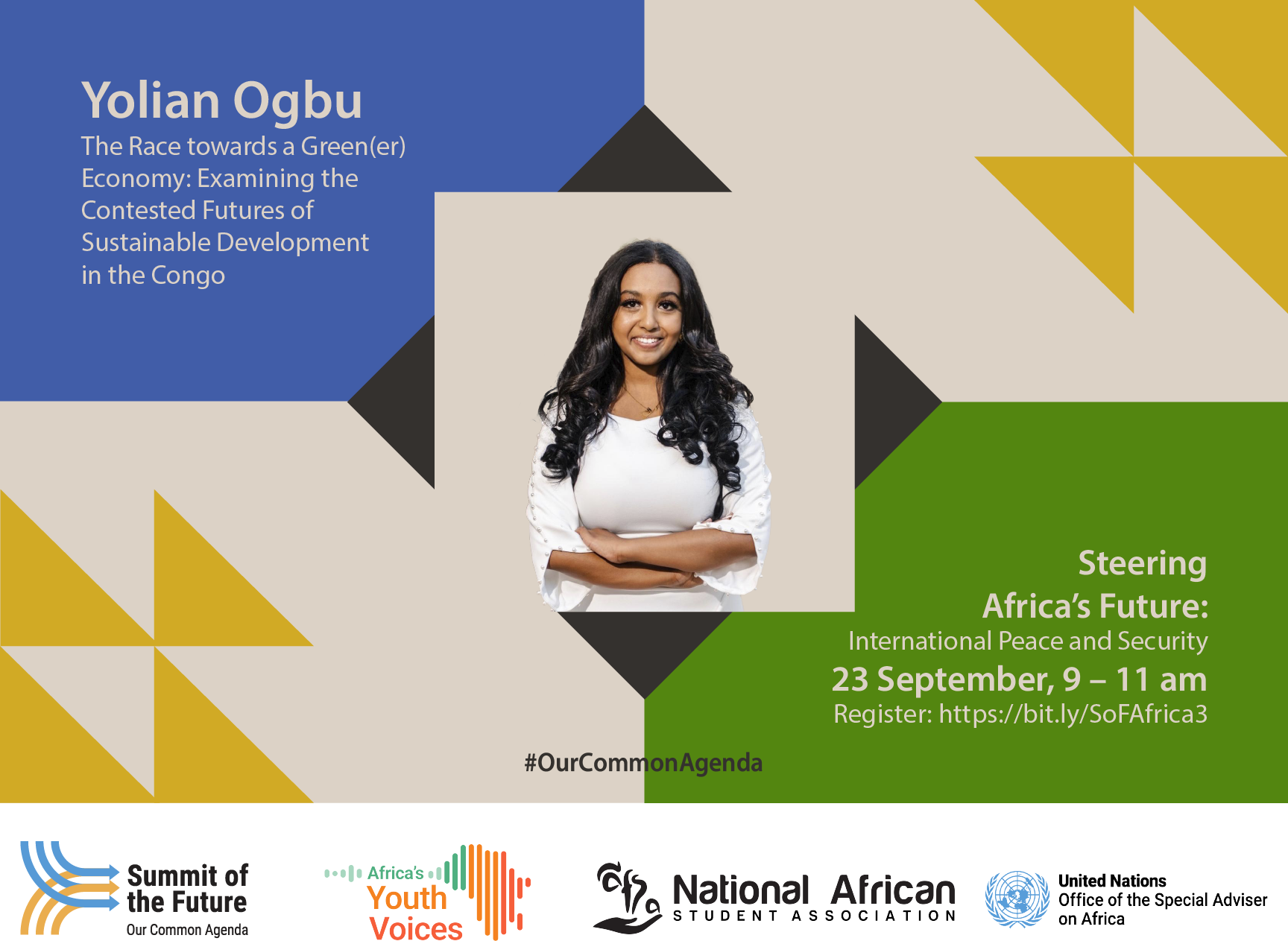

The Race towards a Green(er) Economy: Examining the Contested Futures of Sustainable Development in the Congo
Yolian Ogbu
Steering Africa’s Future: Youth and Future Generations
Register: https://zoom.us/webinar/register/WN_vN8-CpNlR9udw9urHE-rRw
Abstract: The Race towards a Green(er) Economy: Examining the Contested Futures of Sustainable Development in the Congo
As the conditions of the climate crisis give rise to a clean energy transition, multinational corporations have begun the scramble for a piece of the global critical mining market. 70% of the world’s cobalt is in the Democratic Republic of the Congo (DRC). Despite its vast natural resources, more than 70% of the DRC’s population lives in extreme poverty, with high rates of child malnutrition and major infrastructure deficits. Commonly dubbed the “poverty paradox”, the DRC has experienced decades of violent conflict and political instability resulting in over six million deaths since 1996. With global clean energy demands requiring at least double the mining capacity by 2035, questions of resource extraction and ecological sustainability seem to be at odds. In this paper, I explore the interrelation between multinational corporations (MNCs) and nation-states in extractive economies, namely critical mineral production in the DRC. To do so, I will present a historical overview of the concept of sustainable development from when it was first launched at the UN Conference on Environment and Development in 1992 to the subsequent trend of corporate and state-led sustainability reports across central Africa. Through a critical analysis of “sustainable development” through a case study on copper production and the political economy structures of the DRC over the last twenty years, I seek to make an important intervention on external actors in the race towards a “greener economy”. With the average age of the DRC population being 16 years old, I assert that the sustainable policy recommendations must consider and center the future of youth employment in green sectors of the mining economy as corporations look to increase production capacity. This critical intervention in the sustainable development debate offers a reconceptualization of the core/periphery state dynamic as we move towards organizing a Just Transition.